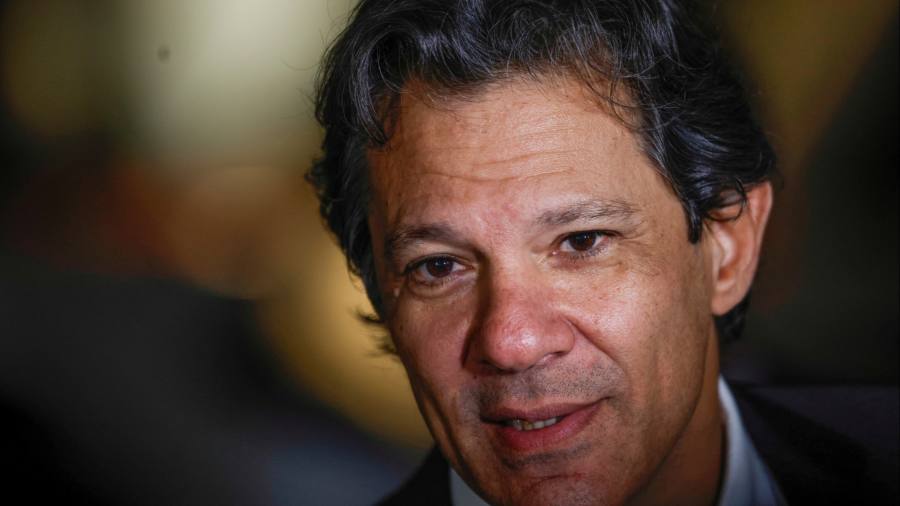Brazil’s president-elect Luiz Inácio Lula da Silva on Friday named Fernando Haddad, a loyalist from his leftwing Workers’ party, as finance minister, reigniting investor fears that the new administration is set to pursue a looser fiscal policy.
The appointment of Haddad, a political-science professor who previously served as minister of education, dashed hopes among Brazil’s business community that Lula would pick a more market-friendly politician to steer Latin America’s largest country through what is expected to be a bumpy few years for the global economy.
“The choice of Haddad, a politician, demonstrates that Lula sees negotiation with Congress as more critical than the formulation of economic reforms,” said Adriano Laureno, of political consultancy Prospectiva.
Hadded is a longtime ally of the president-elect and is tipped by some to be his preferred successor. He is well known for his intellect and political decorum. He is, however, viewed warily by the financial elite — known colloquially as Faria Lima, after an avenue in São Paulo — who believe his focus on social justice will trump fiscal responsibility.
In an interview earlier this year, Haddad said the neoliberal, free-market focus of the outgoing administration of Jair Bolsonaro was “unsustainable”.
“Thirty-eight per cent of Brazilians earn only the minimum wage. If we don’t look at this side of society, if we only look at the stock market, at profits, we will applaud Bolsonaro,” said Haddad during the interview.
Haddad was born in São Paulo, holds a masters in economics and a doctorate in philosophy, and has been a member of the Workers’ party (PT) since he was 20. Earlier in his professional career, he worked as an investment analyst at a bank.
Between 2005 and 2012, he served as minister of education, first under Lula and then Dilma Rousseff. He was then elected mayor of São Paulo, but served only one term after voters rejected his bid for re-election amid a wave of anti-PT sentiment.
In 2018, he was drafted to stand for the presidency against Bolsonaro when Lula was imprisoned on corruption charges and barred from running. He lost by more than 10mn votes.
On the presidential campaign trail at the time, Haddad pledged to increase the minimum wage, repeal a labour reform that benefited employers over workers and suspend privatisations — all policies close to Lula’s heart.
In elections this year, he lost the race for the governorship of São Paulo state, Brazil’s biggest, to Tarcísio de Freitas, a rightwing ally of Bolsonaro, by 2.5mn votes.
The first challenge facing the new administration is an ongoing battle in parliament to pass a constitutional amendment that would allow Lula to fund his campaign promises to boost social spending.
The amendment seeks to raise the country’s mandated spending cap by R$145bn (US$28bn) to make room to maintain the country’s flagship Bolsa Família welfare handout at R$600 a month. The increase would be valid for two years.
The move has unnerved some investors and economists, who fear the new government will abandon fiscal discipline.
Thierry Larose, a portfolio manager at Swiss bank Vontobel, said he expected other crucial posts in Lula’s economic team to be given to “market-friendly personalities”.
“Some technocrats should show that they still care about fiscal responsibility. But the priority will be given to social spending in favour of the poorest and Keynesian-style policies are likely to prevail,” he added.
André Perfeito, chief economist at brokerage Necton, said the choice of Haddad suggested that Lula would not carry out any major economic experiments. “Lula’s desire to make Haddad his direct successor in the 2026 election is public,” said Perfeito. “Lula will not risk more than necessary in the economic agenda.”
On Friday, Lula announced that Flávio Dino, a senator-elect from the north-eastern state of Maranhão, would be justice minister; diplomat Mauro Vieira would become foreign minister; and José Múcio Monteiro, a former president of the Federal Court of Accounts would take the defence portfolio.
Credit: Source link














